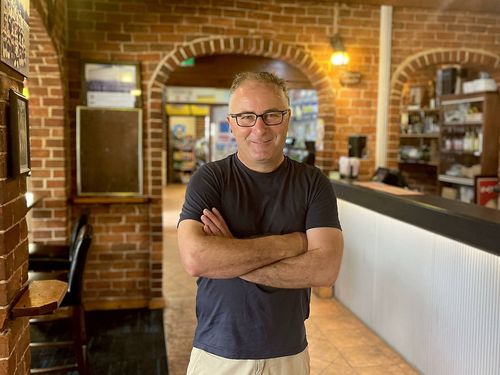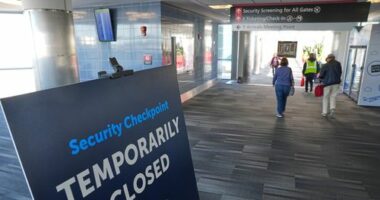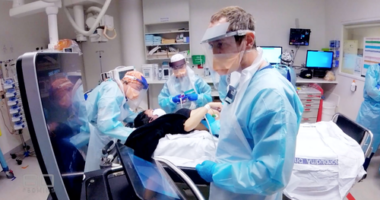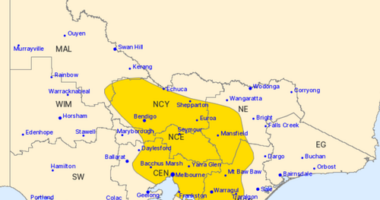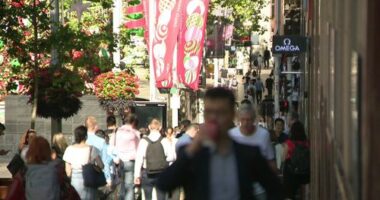Share this @internewscast.com
A regional pub owner has expressed concerns that the Reserve Bank of Australia’s (RBA) proposed ban on card surcharges could lead to increased beer prices, as publicans might need to pass on the fees to their patrons.
The RBA seeks to eliminate extra charges on debit and credit card transactions involving Eftpos, Mastercard, and Visa in Australia, a move intended to save customers an estimated $1.2 billion annually.

However, owners of pubs, cafes, restaurants, and other hospitality venues worry that they may have to absorb these costs themselves, resulting in higher prices for consumers to offset this new financial burden. David Allen, owner of the Cobargo Hotel and Motel in regional south-east NSW, shared with 9news.com.au that he might face an additional expense of up to $1500 per month per terminal if the surcharge ban is enacted next year.
“We’re on a very good rate and there are some businesses that aren’t on those good rates, but it’s still costing us about $1500 a month in surcharges and a fee each month to hire the terminal,” Allen said.
“We’ve got five terminals here. So, it’s about $20,000 a year.”
Allen said many hospitality venues are already feeling a huge strain after the rate decision last week and an ever-persisting cost-of-living crisis.
He predicts the proposal could lift the price of things like coffee, a parmigiana and even beer.
The pub owner doesn’t want his regional customers to fork out more for a simple pleasure, but it could be reality by next year.
“We’re around that $9-$9.50 mark for beer and that’s a psychological barrier already,” he said.
“We just wouldn’t be able to afford to cop that whole $20,000.
“If we couldn’t pass it on to the customer, we’d have to put prices up.
“There’s just no fat left on the animal.”

Allen said the surcharge ban, combined with higher wages and superannuation changes, are stretching businesses to breaking point.
“We’re just getting squeezed at both ends, that’s the reason why there’s so many hospitality businesses that keep going under,” he added.
“It’s not rocket science, you just can’t keep doing it.”
Around 90 per cent of Australian businesses are estimated to be better off under the proposed policies, the RBA said yesterday.
However, Australian Hotels Association CEO Stephen Ferguson said the proposed ban doesn’t make much sense if the guise of saving customers money in surcharges results in higher prices.
He said the bigger vendors may be able to wear the cost, but smaller businesses like the pub in Cobargo are going to “really hurt”.
“In the hospitality sector, the really small guys, coffee vendors and small cafes operate on a margin of 3 to 5 per cent,” he told 9news.com.au.
“The bigger scale hotels will operate maybe up to 10 per cent, but [the smaller ones] can’t afford that one per cent coming out of their profit, and they’ll just pass that cost on.”

The RBA has also proposed more transparency around fees by requiring providers to display their wholesale charges clearly.
Ferguson said this isn’t enough to ensure business owners get the best deal.
“It’s just more convenient to stick with what you know and deal with one bank instead of dealing with multiple,” he said.
“It’s a big leap of faith to say everyone’s going to have this magic epiphany and everyone’s going to start finding the lowest cost.”
A feedback window on the proposals is open until August 26 this year, before the reforms are finalised.
